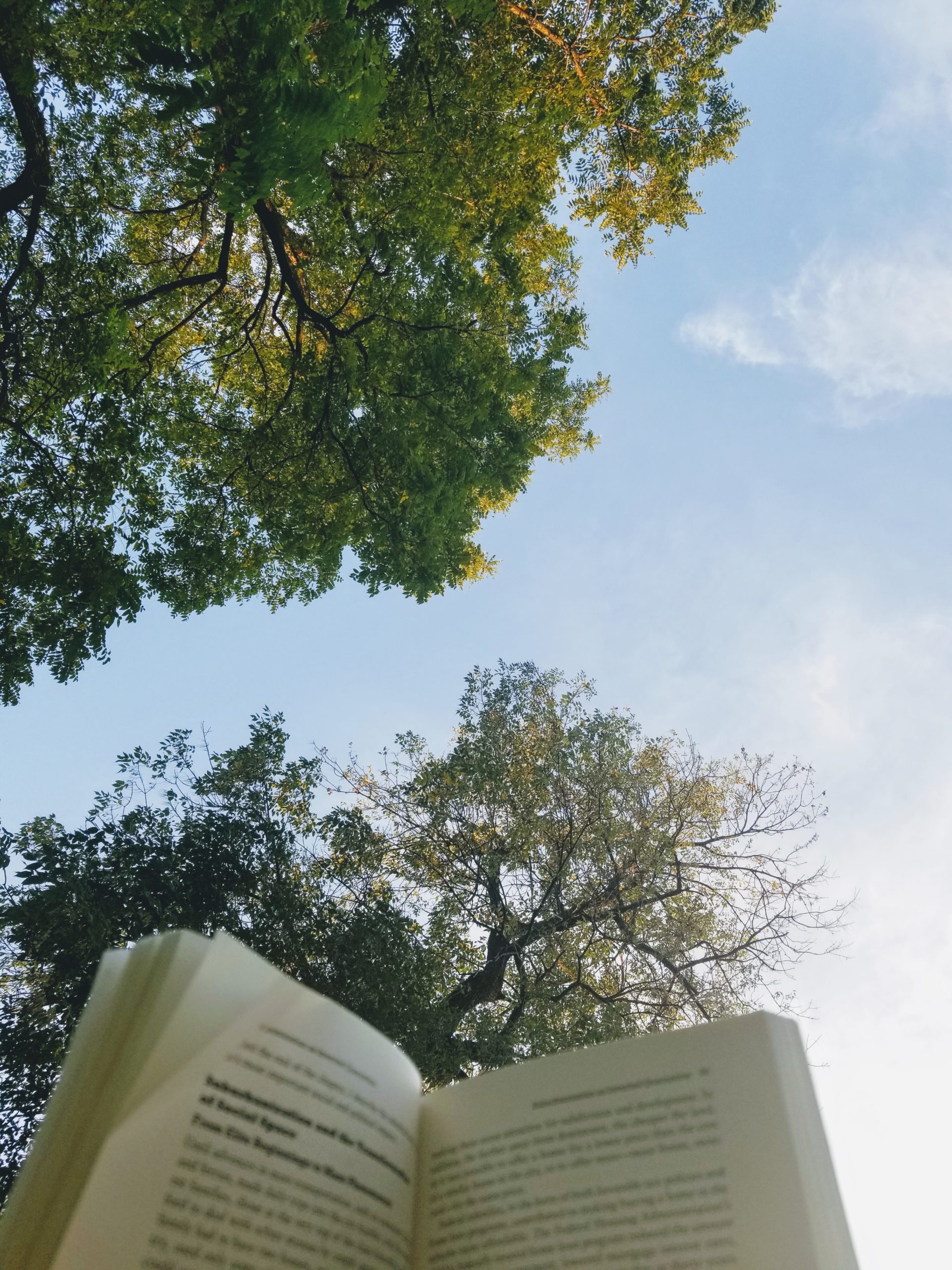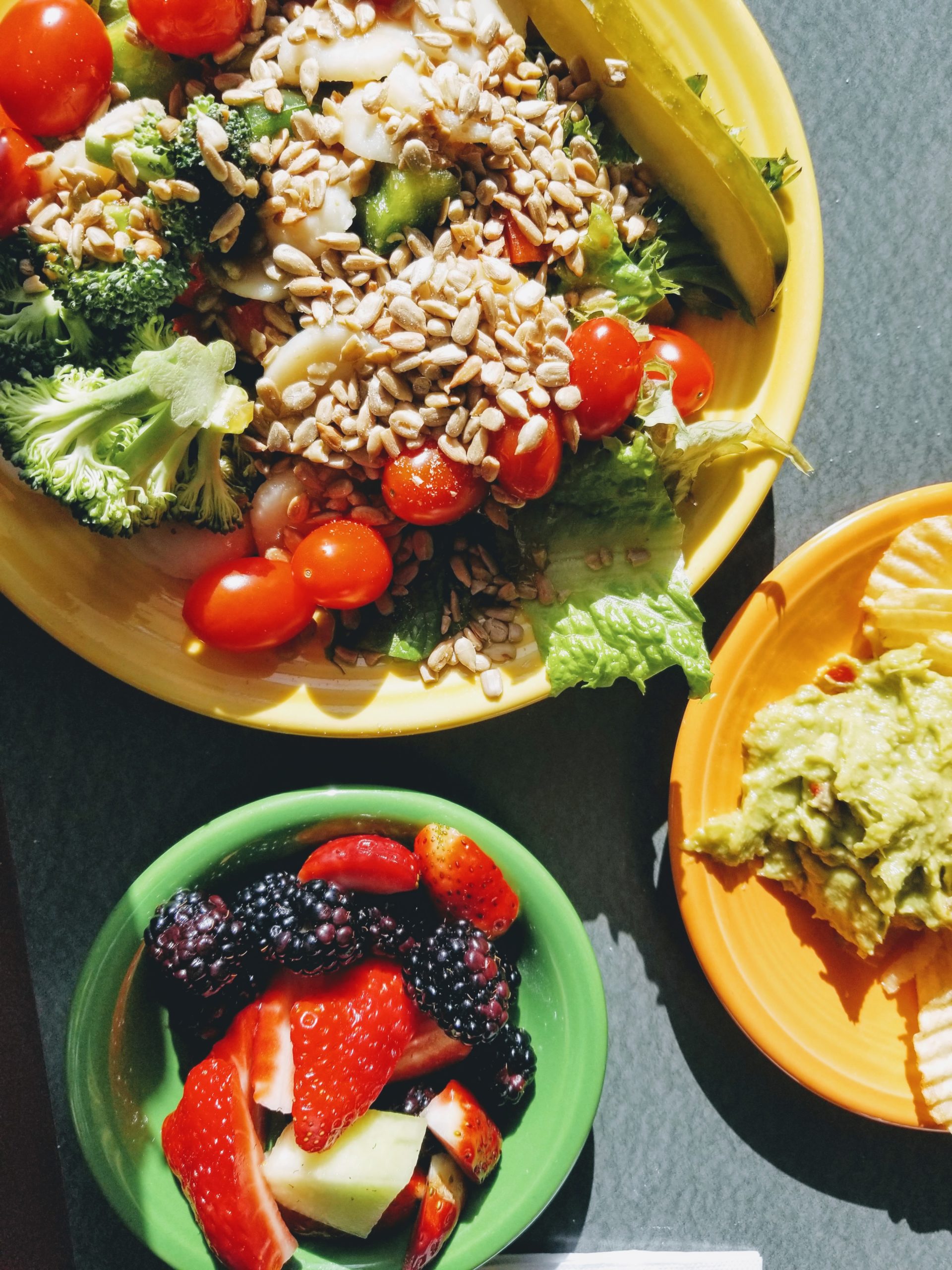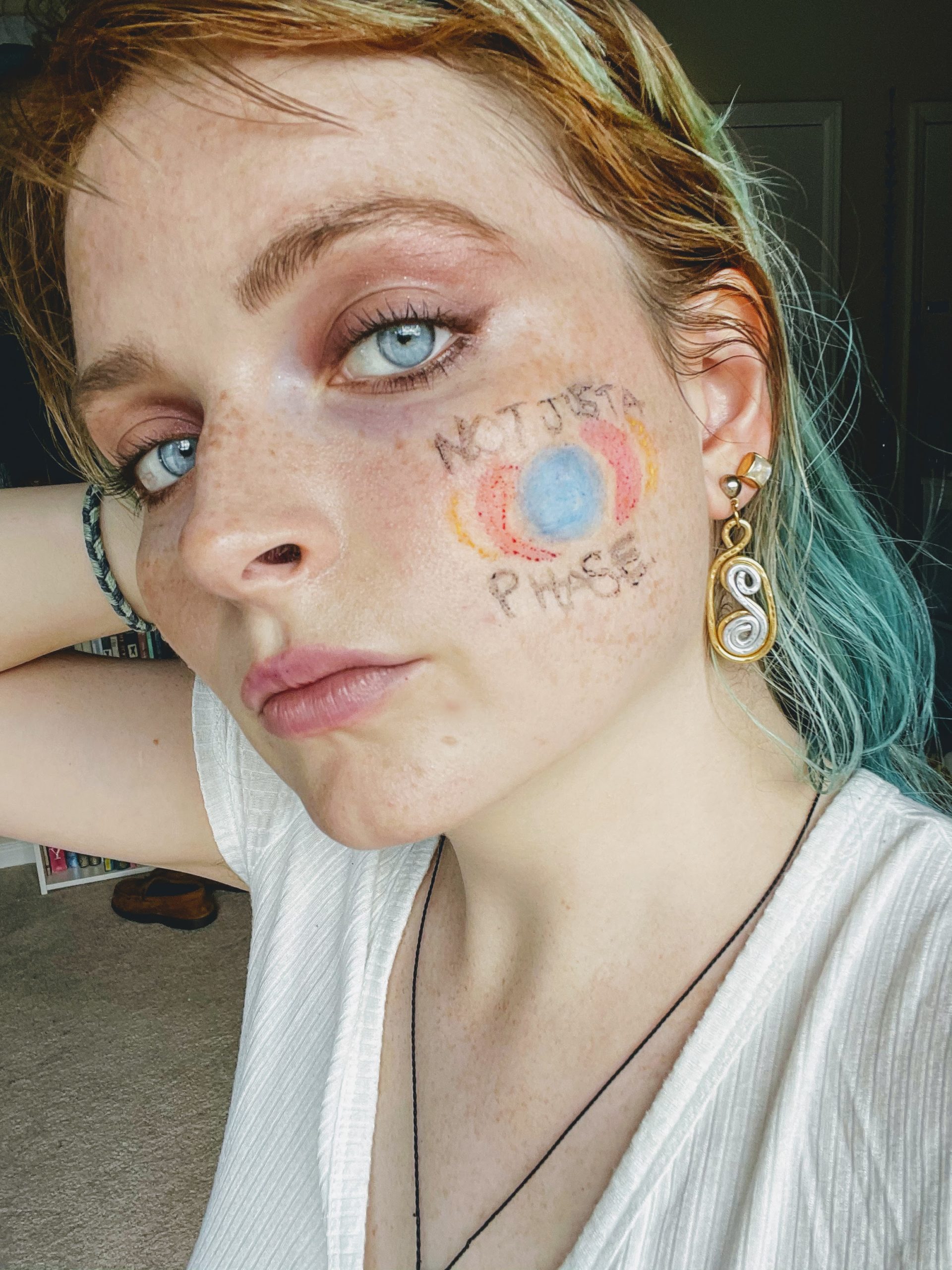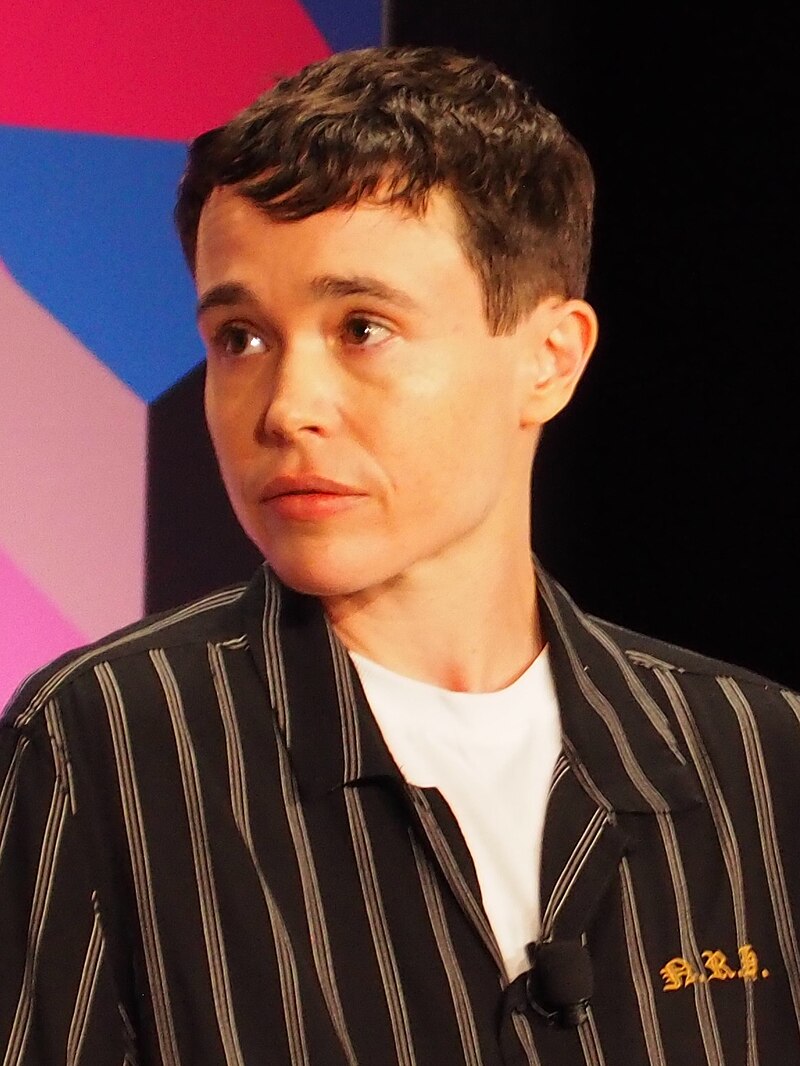I started identifying as an ecofeminist about a month into college. I attend a little liberal arts college in the Blue Ridge Mountains, and one of my majors is environmental studies. Not to be confused with environmental science, environmental studies doesn’t just cover the biology and planetary science associated with what we call the environment. Environmental Studies is largely about our relationship as humans to the Earth. It includes many topics and fields, including environmental justice, gender studies, sexuality in nature, human rights, climate change, biodiversity, veganism and animal rights, and consumption. It’s deeply philosophical as well as scientific and evidence-based, which is what drew me to it. I never liked the very mathematically grounded scientific fields (like chemistry), but I have always cared deeply for the Earth and wanted to help it. When I saw my school differentiated between environmental fields, I knew I wanted to add another major to go with my creative writing degree, gender and womens studies concentration, and art history minor.

One of the foundational and required classes for my major was a class called “Environment and Culture.” It was about how our culture is influenced by the natural world, and about different populations’ relationships to it. We discussed the differences between conservation and preservation, the issues with the concept of National Parks (although wonderful on the surface to nature lovers, they exist because of an assumption that humans don’t belong in nature—on top of that, Native people were banished from their ecosystems), “the tragedy of the commons,” and among other things—ecofeminism. The name of it alone was something that resonated with me, but after hearing what it meant, I knew I had always been one.
Essentially, ecofeminism is the acknowledgment of the fact that the same drive to dominate that oppresses humans also oppresses the Earth. There are many types of oppression, but all rise from the belief in the greater moral significance of one group (i.e. men, colonialists, humans in general) over another (womxn, Indigenous peoples, non-human animals). Oppressive issues of patriarchy, as well as capitalism, violence, and injustice are interconnected with factors that are driving the climate crisis, resulting in the destruction of stable and thriving ecosystems. Feminism is about equality and justice for all people of all genders. Ecofeminism is about justice for all living things.
Because our world is so interconnected, oppression has a domino effect. Having spent my life believing that the Earth is being oppressed, that the patriarchy is the root of our problems as a species, and that feminism and environmentalism are tied, learning about this concept made perfect sense to me. One of my first published pieces of writing was about how the climate crisis in Africa is affecting women more than other genders.

Ecofeminism is considered to be among the most important fields of study in the environmental studies field, because it gets at the root of our biggest issues that we face—war, the climate crisis, inequality, capitalism, and violence. If more people were aware of it, we could have a better chance at getting at the actual issues. We could turn off the tap rather than using towels to mop up the water as it pours out.
With the rise of social media activism, the name “intersectional environmentalism” has been used to describe the same concept instead. This name was popularized by those who have not studied environmental studies (or therefore, ecofeminism) at an academic or professional level, so while the name is different and more simplified, it’s the same thing as ecofeminism. Intersectional environmentalism doesn’t go as deep as ecofeminism does, but it’s essentially a simplified version of it, generally focusing on the issue of racism in environmentalism (rather than patriarchy, speciesism, and other important parts of this overall concept). It still gets at the idea that oppression is the reason behind the climate catastrophe, so it is good that at least a portion of ecofeminism is being talk about on social media.
The thing is, people will listen to popular environmental influencers before they listen to academics, authors, scientists, philosophers, or professionals in the field because it can feel more accessible for them. The influencers are more popular, sometimes closer to their age, and are generally photogenic. Most of these influencers don’t have degrees or professional experience in the environmental field (especially not in ecofeminism), so while the information they share may be simplified, the bright side is that they are passionate about the planet. When ordinary people care a lot about the natural world, that is very powerful. It’s encouraging to see people who have different degrees or aren’t in the field talk about the planet and issues surrounding it, so while the information isn’t always completely accurate or discussed in depth, it’s still being discussed and at this point that is crucial.
The best way to get involved with ecofeminism is to study it. If you are able to study it in college, get a bachelor degree in environmental studies, and try to pair it with a minor or concentration in fields like gender and women’s studies, philosophy, religion, animal rights, or other parts of the field that interest you. You’ll be able to learn from experts, read accurate books on the topics, and learn how to articulate what you learn effectively. That said, college is very expensive, so if you don’t want to go to school to become an expert in it, here are some really affordable and powerful ways to be an ecofeminist:
Don’t eat dairy or eggs.
This is a big part of ecofeminism. It’s hard to read an academic essay about it without coming across the example of how humans have subjugated other animals to being forcibly impregnated (raped), separated from their offspring, and forcibly milked before repeating the cycle. It’s the ultimate, global example of a patriarchal tradition that oppresses females and exploits the female reproductive system without consent. The reproductive system of female chickens is also taken advantage of in the egg industry—even in backyard coops if the chickens are bought for their eggs, that is essentially purchasing another living being to benefit off of their reproductive system. The dairy industry targets female milk-producers—but male animals are also harmed because their semen is forcibly taken from them in order to impregnate the females. (As with human patriarchy, patriarchy in general harms all genders.) Partaking in animal products perpetuates an oppressive system. To be an ecofeminist in practice, you cannot partake in these industries.

Aim to not participate in capitalism.
Now, this is hard to do considering most of us live in a capitalist system. In the developed world, people no longer practice subsistence living. That said, you can still avoid fast fashion, thrift, support circular businesses, compost, be as zero-waste as possible, grow your own food or support community gardens, and buy local. Capitalism is killing the planet due to the stress that it puts on ecosystems, and it also oppresses humans (blood diamonds and sweat shops being just a few examples).
Don’t buy products with palm oil in them.
It’s very hard to safely say what palm oil is sustainable, due to the system that issues sustainability badges (the same as true with seafood). Palm oil is resulting in one of our main three rainforests being burned to the ground. Hundreds of magnificent animals are dying because of it, and our planet is becoming less equipped to handle the stress that we are putting on the breathable air that we need. Poor air quality is a leading cause of death in the world, and practices like this continue this harm being done to humans, animals, and the Earth. Opt out of this deadly cycle by choosing to not buy products with palm oil in them. Watch out for them in snacks, processed foods, bar soaps, and candles.
Vote for politicians and leaders that prioritize gender equality and the planet.
Those in charge have a lot of power over what gets saved on this planet, and what doesn’t. They also have a lot of say in who gets human rights and who doesn’t. Make sure that your politics align with your values. Be sure to research who you vote for before you cast your vote. Are they against homophobic policies? Are they against pipelines? Are they about closing the gender wage gap? Take their views seriously, and consider writing the ones who are against human rights and environmentalism to let them know why you aren’t voting for them. Politicians want to be reelected. You’d be surprised how much these emails or letters can influence their politics.

Support being pro-choice.
A huge part of ecofeminism and positive modernization globally is making sure that abortion is accessible and safe (as well as birth control). Donate to places that offer it like Planned Parenthood, and be sure to be vocal about your support for people’s choice to have abortions. You don’t have to get an abortion or want one to want others to have that choice. A woman’s body is her own; many ecofeminist scholars would compare this to the fact that the planet shouldn’t be destroyed when it doesn’t have the ability to opt out and choose for itself. We need to fight for a society where people can choose what they do with their lives, their bodies and their time in order to have an equitable and non-oppressive community.
Don’t just support saving the sea turtles and rainforest—support a livable wage, free education for all, animal rights, etc.
Understanding that the natural world is interconnected and therefore so is advocacy for its health. We are a part of the natural world—not apart from it, so we need to be thriving as well. That is just as much a part of environmental advocacy as advocating for non-human animals and plants is. Fight for endangered species and the ocean, but also fight for justice, human rights, and free healthcare for all.
Keep learning by supporting ecofeminist writers, activists, speakers, and experts.
Knowledge really is key when it comes to battling the climate crisis, so read books about ecofeminism and support ecofeminists (online and in person). Ask them questions, read their essays, follow them on social media, and seek out more ways to engage with the philosophy and those who study it. That’s the most powerful way to learn anything.

Get more like this—Sign up for our daily inspirational newsletter for exclusive content!
__
Photo: Emily Iris Degn




